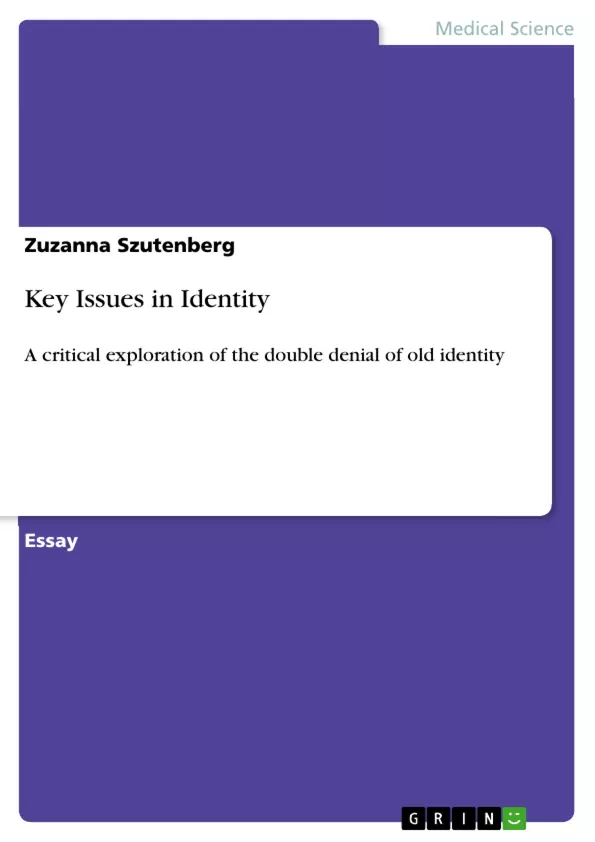This essay will focus on changing representations and new identities of third agers in the context of British social policy.
Recently, the perception and representation of later life have undergone important changes. Issues around age and oldness are characterized by asynchronities, ambiguities and contradictions. Thus, on a scale of extremes, we can observe a paradigmatic shift to frame the later life as Golden Age, characterized by incentives for participation and inclusion that coexists with a widespread social ignorance of the old, perpetuating the deeply rooted disgust against the frailness of the Dark Age.
The so called ‘old’ are in the cross-fire of cultural debates, welfare policies and consumption strategies. Their growing demographic and political pressure continues to force authorities of public life to deal with the question who they – ‘the old’ – actually are. A ‘creative amalgamation’ (Holstein&Minkler, in Bernard&Scharf, 2007:24) of knowledge and experience is needed in order to understand and take abreast of new meanings and identities in later life.
Table of Contents
- Introduction
- Defining Age and Ageism
- The Disappearing Granny Trick
- From Welfare to Well-Being
Objectives and Key Themes
This essay aims to critically examine the underrepresentation and misrepresentation of older people in British society and beyond, challenging traditional ageist perceptions and exploring the evolving identities of third agers in the context of social policy, consumerism, and the postmodern subject.
- Challenging traditional ageist representations and the notion of “old” as a homogenous group.
- Analyzing the impact of social policy and welfare services on third agers.
- Exploring the role of consumerism in shaping identities and inclusion in later life.
- Examining the interplay between individual agency and societal constraints in shaping third age identities.
- Advocating for a realistic and nuanced representation of third agers that avoids both romanticization and pathologization.
Chapter Summaries
The essay begins by outlining the traditional view of aging as "vieillesse ingrate," highlighting negative ageist stereotypes and the process of social invisibility through labor market expulsion. It then explores the complex interplay of social policy changes, consumerism, and the postmodern subject in shaping third age identities, arguing that the simplistic notion of a homogenous “old” group is breaking down.
The essay also critically examines the concept of "accomplished ageing," “positive ageing strategy,” and "ageing well," arguing that they can reinforce ageism if embraced uncritically. It advocates for a more nuanced approach that avoids the pitfalls of both glorifying and pathologizing third age experiences. The essay concludes by emphasizing the need to integrate both academic and personal knowledge of older people into public opinion and social policy.
Keywords
The essay focuses on key themes of ageism, third age identity, social policy, consumerism, representation, and the postmodern subject. It explores the complexities of aging and its implications for social inclusion, welfare services, and individual agency in the context of a changing demographic landscape.
Frequently Asked Questions
What is the "Third Age"?
The Third Age refers to the period in life after retirement, characterized by active participation, well-being, and personal growth, distinct from the frailty of the "Fourth Age."
How does British social policy represent older people?
There is a shift from seeing them as welfare dependents to active consumers, though ageist stereotypes and social invisibility still persist.
What is "Ageism"?
Ageism is the stereotyping and discrimination against individuals or groups based on their age, often leading to social exclusion of the elderly.
How does consumerism shape the identity of third agers?
Consumerism offers new ways for older people to express their identity and stay included in society, but it can also marginalize those without financial resources.
What is the "Disappearing Granny Trick"?
It refers to the social process where older women, in particular, become invisible in public life and the labor market as they age.
- Arbeit zitieren
- Zuzanna Szutenberg (Autor:in), 2012, Key Issues in Identity, München, GRIN Verlag, https://www.grin.com/document/202019



